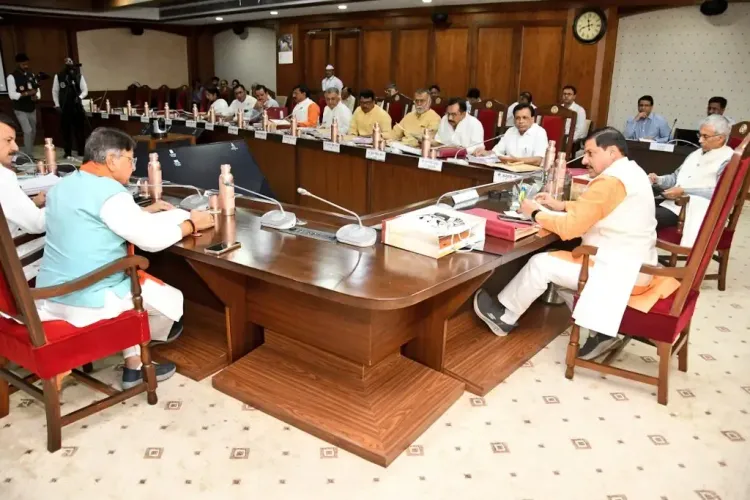Madhya Pradesh Government Revives Rural Transport Initiative, Introduces Cargo Services

Synopsis
Key Takeaways
- Public-private partnership model to minimize risks.
- Introduction of cargo handling services.
- Modern technology in transportation with IT-enabled systems.
- Focus on tribal and rural connectivity.
- Surveys to assess demand in major divisions.
Bhopal, April 1 (NationPress) In a bid to bolster rural transport in Madhya Pradesh, the state administration has sanctioned an innovative transport policy called ‘Mukhyamntri Sugam Parivahan Sewa’.
This pioneering scheme aims to improve connectivity in isolated regions and provide modern transport solutions, along with a cargo handling service, through this revamped surface transport framework.
A new holding entity, inspired by the previous MP State Road Corporation Limited, will be set up to operationalize this initiative. However, unlike its predecessor, this company will not possess buses but will collaborate with private operators to ensure efficient service management.
During the announcement, Kailash Vijayvargiya, the state spokesperson and Urban Development Minister, revealed that the Cabinet has approved Rs 101 crore for establishing the holding entity.
Focusing on a public-private partnership (PPP) model, he mentioned that private bus operators would be involved in the program, thereby reducing operational risks.
Technological innovations will be pivotal, with buses featuring IT-enabled systems to guarantee smooth operations and secure ticketing processes.
This strategy is anticipated to minimize theft and enhance passenger satisfaction.
The policy is particularly crucial for tribal and rural regions, tackling longstanding transportation challenges in remote areas following the shutdown of the previous organization.
District collectors, in collaboration with local committees, will manage the plan's execution, determining routes and working with the holding company.
Highlighting the modern features of this new initiative, the Minister underscored the introduction of a mobile app and a real-time monitoring dashboard for both passengers and operators, which were missing in the earlier MPSRTC framework.
Current surveys are evaluating demand across seven major divisions - Bhopal, Indore, Jabalpur, Gwalior, Ujjain, Sagar, and Rewa - to finalize the operational structure. The scheme also encompasses a cargo-handling segment, facilitating goods transport between cities like Indore and Bhopal.
According to the Minister, the buses will fulfill dual roles for passengers and freight, establishing a sustainable model without profit-driven motives.
The state-level holding company, supported by regional subsidiaries and district committees, will ensure effective management of the service while regulating fares, optimizing routes, and generating revenue for enhanced operations.
This initiative promises to revolutionize transportation in Madhya Pradesh, benefitting passengers, supporting private operators, and promoting development in underserved regions, he stated.
The state-run road transport service, which was halted under the previous Chief Minister Babulal Gaur-led BJP government due to financial deficits, had left a significant gap in the public transport sector.
While private bus operators emerged over time, they primarily targeted profitable routes, leaving numerous villages and rural communities without a dependable transportation option.
The lack of a comprehensive public transport system has severely impacted rural connectivity, hindering access to education, healthcare, and economic prospects.
With the revival of state-run transport, tier-II towns and villages are anticipated to experience a surge in economic activities.









